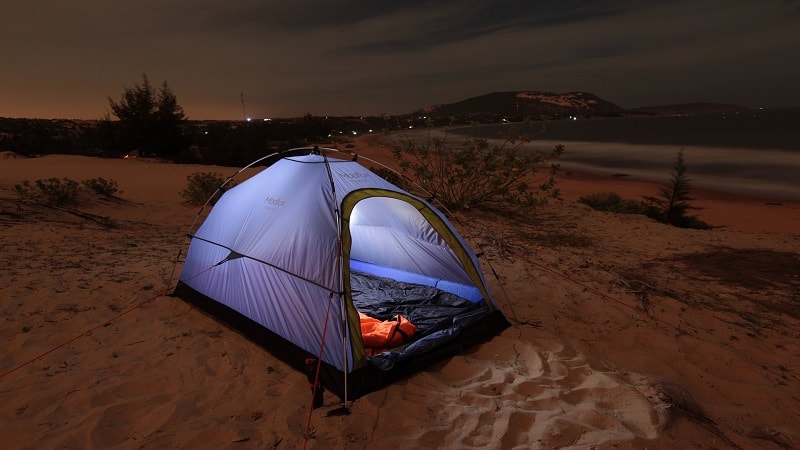Beach camping is an irresistible blend of adventure and relaxation. The gentle sway of waves, soft sand beneath your feet, and the fresh scent of salt in the air create a setting unlike any other. Yet, camping on a beach comes with its own set of unique challenges that can turn a perfect trip into a struggle if unprepared. Whether you are a seasoned camper or trying beach camping for the first time, these tips and tricks will help you make the most of your coastal experience.
Choosing the Right Spot
The foundation of a successful beach camping experience starts with selecting the perfect location. Not all beaches are created equal when it comes to camping. Consider the tide patterns and avoid setting up too close to the waterline to prevent your campsite from being flooded during high tide. Look for areas with some natural shade, such as dunes, cliffs, or clusters of trees, to provide relief from the sun. Privacy and accessibility are also important. A beach that is too remote might pose challenges if you need supplies or emergency assistance, while an overly crowded spot could disturb the peacefulness that makes beach camping so appealing.
Timing Your Trip
Timing can make a world of difference for your beach camping adventure. Arriving early in the day allows you to secure an ideal spot, set up your camp, and enjoy the calm before the crowds arrive. Consider seasonal weather patterns as well, since coastal areas can experience sudden shifts in temperature and unexpected storms. Windy conditions, especially during off-season months, may make tent setup and cooking more difficult. Planning around calmer weather ensures a more enjoyable and safer experience.
Packing Smart
Beach camping requires a thoughtful approach to packing. Sand, sun, and saltwater are your constant companions, and your gear should be prepared accordingly. Choose tents with durable stakes that can be anchored into sand, and consider bringing a groundsheet or tarp to create a barrier between your tent and the shifting sand. Lightweight and breathable fabrics are ideal for clothing, while waterproof bags protect essentials from unexpected splashes or morning dew. Do not underestimate the importance of shade; umbrellas or pop-up canopies can be lifesavers during peak sun hours.
For cooking, bring compact and portable solutions. Gas stoves or small grills are preferable to open fires on beaches where regulations may prohibit fire pits. Ensure your cooking area is set up safely away from your tent and flammable materials. Food storage should prioritize items that are resilient to heat and humidity, while keeping pests at bay.
Managing Sun Exposure and Heat
The sun on a beach can be intense, reflecting off sand and water and increasing your exposure to harmful rays. Protecting yourself is essential. Wearing hats, sunglasses, and light but long-sleeved clothing helps minimize direct sun contact. Sunscreen should be applied generously and re-applied frequently, especially after swimming. Hydration is critical in the heat, so carry ample water and consider using insulated bottles to keep drinks cool. Simple measures like timing strenuous activities for early morning or late afternoon can prevent heat exhaustion and keep your beach camping experience comfortable.
Dealing with Sand and Moisture
Sand is both a charm and a challenge. While it offers a soft surface to lounge on, it can invade every corner of your campsite if precautions are not taken. Bringing a small brush or shake mat for your tent entrance helps limit sand intrusion. Keeping items off the ground using beach chairs or raised tables reduces contact with sand and moisture. Wiping feet with a damp towel before entering your tent and storing shoes in a separate bag can preserve cleanliness inside your sleeping area. Moisture from sea breezes can also accumulate, so breathable tents and ventilation options are crucial to prevent condensation.
Staying Safe and Eco-Friendly
Safety and environmental consciousness should guide your beach camping practices. Be mindful of local wildlife and avoid disturbing nesting birds or marine life. Understand and adhere to beach regulations regarding fires, waste disposal, and camping permits. Carry trash bags and ensure that every piece of waste, even biodegradable items, is removed from the beach to preserve its natural beauty. Awareness of rip currents and swimming hazards is also crucial if you plan on taking a dip. Respecting nature not only keeps you safe but also ensures that others can enjoy the same pristine environment in the future.
Managing Energy and Electronics
Even the most remote beach campsite may require access to power for lighting, charging devices, or running small appliances. Portable energy solutions have become a game-changer for beach campers. Compact, durable units that can store significant energy allow you to power your essentials without relying on noisy generators or shore facilities.
For campers looking to extend their stay comfortably, such a device ensures that lights, fans, and even small kitchen appliances remain functional throughout the trip. Using solar panels can complement this setup, harnessing the abundant sunlight at the beach to keep your gear charged sustainably. One of the most reliable and versatile options comes from brands like ALLPOWERS, which provide lightweight, weather-resistant units designed specifically for outdoor adventures.
Preparing for Weather Changes
Even the most perfect beach day can be subject to unexpected weather changes. Packing layers allows you to adjust to cooler evening temperatures or sudden breezes. Waterproof tarps and quick-dry clothing can protect you during unexpected rain showers, ensuring that a sudden storm does not ruin your adventure. Monitoring local weather forecasts before and during your trip helps you make informed decisions about activities and campsite safety. Being prepared for all conditions ensures that beach camping remains an enjoyable and stress-free experience.
Conclusion
Beach camping is a unique adventure that combines the thrill of the outdoors with the soothing rhythm of the ocean. Success requires thoughtful planning, careful packing, and attention to comfort, safety, and environmental responsibility. Choosing the right spot, timing your trip, managing sun and sand, and preparing for weather shifts all contribute to a seamless experience.






